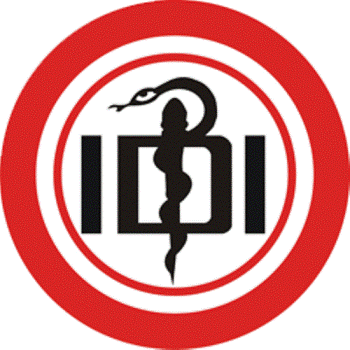Depression After the Birth of a Child or Pregnancy Loss
What is postpartum depression?
Postpartum depression is a complex mix of physical, emotional, and behavioral changes that occur after giving birth that are attributed to the chemical, social, and psychological changes associated with having a baby.
Who is affected by postpartum depression?
Postpartum depression is common. As many as 50 to 75 percent of new mothers experience the "baby blues" after delivery. About 10 percent of these women will develop a more severe and longer-lasting depression, called postpartum depression, after delivery. One in 1,000 women develop the more serious condition called postpartum psychosis.
What factors increase my risk of being depressed after the birth of my child?
Having a personal or family history of depression or premenstrual dysphoric disorder (PMDD)
Age at time of pregnancy -- the younger you are, the higher the risk
Living alone
Limited social support
Children -- the more you have, the more likely you are to be depressed in a subsequent pregnancy
Marital conflict
Ambivalence about the pregnancy
A history of depression during pregnancy -- 50% of depressed pregnant women will have postpartum depression
Types of postpartum depression
Postpartum blues -- Better known as the "baby blues," this condition affects between 50 and 75 percent of women after delivery. If you are experiencing the baby blues, you will have frequent, prolonged bouts of crying for no apparent reason, sadness, and anxiety. The condition usually begins in the first week (one to four days) after delivery. Although the experience is unpleasant, the condition usually subsides within two weeks without treatment. All you'll need is reassurance and help with the baby and household chores.
Postpartum depression -- This is a far more serious condition than postpartum blues, affecting about 1 in 10 new mothers. If you've had postpartum depression before, your risk increases to 30 percent. You may experience alternating "highs" and "lows," frequent crying, irritability, and fatigue, as well as feelings of guilt, anxiety, and inability to care for your baby or yourself. Symptoms range from mild to severe and may appear within days of the delivery or gradually, even up to a year later. Although symptoms can last from several weeks up to a year, treatment with psychotherapy or antidepressants is very effective.
Postpartum psychosis -- This is an extremely severe form of postpartum depression and requires emergency medical attention. This condition is relatively rare, affecting only 1 in 1,000 women after delivery. The symptoms generally occur quickly after delivery and are severe, lasting for a few weeks to several months. Symptoms include severe agitation, confusion, feelings of hopelessness and shame, insomnia, paranoia, delusions or hallucinations, hyperactivity, rapid speech, or mania. Postpartum psychosis requires immediate medical attention since there is an increased risk of suicide and risk of harm to the baby. Treatment will usually include admission to hospital for the mother and medicine.
What causes postpartum depression?
More research is needed to determine the link between the rapid drop in hormones after delivery and depression. The levels of estrogen and progesterone, the female reproductive hormones, increase tenfold during pregnancy but drop sharply after delivery. By three days postpartum, levels of these hormones drop back to pre-pregnant levels. In addition to these chemical changes, the social and psychological changes associated with having a baby create an increased risk of postpartum depression.
Can postpartum depression be prevented?
Here are some tips that can help prevent, or help you cope with postpartum depression:
Be realistic about your expectations for yourself and your baby
Limit visitors when you first go home
Ask for help -- let others know how they can help you
Sleep or rest when your baby sleeps!
Exercise; take a walk and get out of the house for a break
Screen your phone calls
Follow a sensible diet; avoid alcohol and caffeine
Keep in touch with your family and friends -- do not isolate yourself
Foster your relationship with your partner -- make time for each other
Expect some good days and some bad days
Treating postpartum depression
Postpartum depression is treated differently depending on the type and severity of the woman’s symptoms. Treatment options include anti-anxiety or antidepressant medicines, psychotherapy, and support group participation.
In the case of postpartum psychosis, medicines used to treat psychosis are usually added. Hospital admission is also usually necessary.
If you are breastfeeding, don’t assume that you can't take medicines for depression, anxiety, or even psychosis. There have been no reports of breastfed babies whose mothers are taking antidepressants suffering any ill effects, but as yet no long-term follow-up data is available.
What is the outlook?
With professional help, almost all women who experience postpartum depression are able to overcome their symptoms.
When should a new mom should seek professional medical treatment?
A new mom should seek professional help when:
Symptoms persist beyond two weeks
She is unable to function normally; she can’t cope with everyday situations
She has thoughts of harming herself or her baby
She is feeling extremely anxious, scared, and panicked most of the day
©Copyright 1995-2007 The Cleveland Clinic Foundation. All rights reserved
Can't find the answer for your health question? Chat with a Health Educator, Live!
Click here to go to the Department of Psychiatry and Psychology Web site.
Know someone who could use this information?....send them this link.
This information is provided by the Cleveland Clinic and is not intended to replace the medical advice of your doctor or health care provider. Please consult your health care provider for advice about a specific medical condition. For additional written health information, please contact the Health Information Center at the Cleveland Clinic (216) 444-3771 or toll-free (800) 223-2273 extension 43771 or visit www.clevelandclinic.org/health/. This document was last reviewed on: 4/12/2005
Contact Us Disclaimer Send This Link Help and Site Map Privacy Policy Cleveland Clinic
Reprint and Licensing Information About This Site Quality Measures 11/15/2007
We subscribe to the HONcode principles
Verify here The Cleveland Clinic Department of Patient Education and Health Information
9500 Euclid Ave. NA31 Cleveland, OH 44195
216/444-3771 or 800/223-2273 ext.43771 healthl@ccf.org
Copyright © 2007 The Cleveland Clinic
index#9312
BLOG DOKTER SPESIALIS KEBIDANAN DAN PENYAKIT KANDUNGAN ( Obstetric's & Gynecologist Blog ) Sumatera Barat.,Indonesia
SAVE YOUR BABY'S, SAVE NEXT GENERATION'S
SAVE YOUR BABY'S, SAVE NEXT GENERATION'S
Search This Blog
- Universitas Andalas Website
- TRIGEMINAL NEURALGIA LECTURES AND TREATMENT
- Maternal and Child :Research and Article
- dr Firman. Abdullah SpOG/ OBGYN .Personal Edition
- dr Firman Abdullah SpOG / ObGyn.com
- Dr Djohanas Djohan Abdullah Memorial Hospital.com
- Bukittinggi International Hospital.com
- Aliansi Rakyat Anti Korupsi Bukitinggi.com
Jam Gadang.Bukittinggi. Sumatera Barat .Indonesia
24.jpg)

Bung Hatta statue ,Bukittinggi
About me.....
IKATAN DOKTER INDONESIA (IDI).Sumatera Barat

INDONESIAN MEDICAL ASSOCIATION
ASSALAMUALAIKUM........
dr Firman Abdullah SpOG / OBGYN
Peer - Review..Cyberounds
Blog Archive
-
►
2008
(1)
- ► March 2008 (1)
-
▼
2009
(387)
-
▼
April 2009
(87)
- CYTOMEGALOVIRUS ,CHILDREN'S HOSPITAL BOSTON
- CYTOMEGALOVIRUS INFECTION ; Mark R Schleiss, MD,
- PREGNANCY CDC cytomegalovirus
- CMV infection in pregnancy
- CDC urges doctor to combat birth-defect virus
- Cytomegalovirus-associated protein-losing gastropa...
- Cytomegalovirus myopericarditis and hepatitis in a...
- Congenital cytomegalovirus infection associated wi...
- Acute viral infections in patients with systemic l...
- Pulmonary embolism and portal vein thrombosis in a...
- Deep vein thrombosis and acute cytomegalovirus inf...
- Fetal ascites owing to congenital cytomegalovirus:...
- Cytomegalovirus-related fetal brain lesions: compa...
- Association between cytomegalovirus infection and ...
- Patient information: Avoiding infections in pregnancy
- Perinatal Cytomegalovirus and Toxoplasmosis: Chall...
- Late-onset CMV disease following CMV prophylaxis
- Congenital CMV infection in symptomatic infants in...
- Maternal-fetal cytomegalovirus infection: from dia...
- A case of acute pericarditis with hemophagocytic s...
- Abdominal aortic aneurysm and cytomegalovirus infe...
- Acute cytomegalovirus infection and venous thrombo...
- Acute urinary retention in a 7-year-old girl: an u...
- Acute viral infections in patients with systemic l...
- Association between cytomegalovirus infection and...
- CDG type Ia and congenital cytomegalovirus infecti...
- CMV-induced neonatal thrombocytopenia: a case repo...
- Congenital cytomegalovirus infection following pri...
- Congenital cytomegalovirus infections.
- Cytomegalovirus (CMV)
- Cytomegalovirus in Pregnancy: Primary versus Recur...
- Cytomegalovirus infection
- Cytomegalovirus infection common during pregnancy
- Cytomegalovirus infection in early infancy: risk o...
- Cytomegalovirus Infection ,Mark R Schleiss
- Cytomegalovirus pneumonitis in a patient with neph...
- Tetralogy of Fallot ,MAYO CLINIC
- Tetralogy of Fallot , MAYO CLINIC
- Wegener's granulomatosis complicated by intestinal...
- Autism in children with congenital rubella
- Follow-up report on autism in congenital rubella
- Surveillance of Measles-Mumps-Rubella Vaccine-Asso...
- Congenital rubella syndrome after maternal reinfec...
- What Causes Thrombocytopenia?
- Idiopathic Thrombocytopenia Purpura
- Neonatal Thrombocytopenia: Evaluation and Management
- Syndrome of Inappropriate Secretion of Antidiureti...
- Infertility ; Asherman's Syndrome (FAQ)
- ASHERMAN'S SYNDROME
- Infectious agents as disruptors of calcium homeost...
- Pregnant Women
- What Clinicians Need to Know About MMRV Vaccine Sa...
- ACOG Issues Guidance on Treatment of Morning Sickn...
- A Gonadotrophin-releasing Hormone Agonist compared...
- PCOS, Metformin and Insulin Resistance
- Retinal Vein Occlusion
- Obesity and infertility
- Vaginal Birth Not Associated With Incontinence Lat...
- ACOG Recommends Restricted Use of Episiotomies
- ACOG Calls on Ob-Gyns, Health Care Professionals, ...
- Hormonal treatments for adenomyosis
- Conserving Ovaries During Hysterectomy Benefits Lo...
- About your Exam - Ultrasound Safety
- Pregnancy and Work: Telling Your Boss
- Eating disorders and Pregnancy
- Depression After the Birth of a Child or Pregnancy...
- Periconceptional supplementation with folate and/o...
- Postpartum depression
- Vertical transmission of genital herpes: preventio...
- Impact of FDA advisory on reported vacuum-assisted...
- Vaccination During Pregnancy
- Do the emotional states of pregnant women affect n...
- Timing of Elective Repeat Cesarean Delivery at Ter...
- Early maternal feeding following caesarean deliver...
- Cesarean by choice? Empirical study of public atti...
- The delayed effects of congenital rubella syndrome
- Importance of an Eye Examination in Identifying th...
- RUBELLA: Viral Exanthems (Rashes)
- Birth defects
- Congenital Rubella Syndrome : Mental Retardation
- Childhood Vaccination May Protect Adult Eyes
- The delayed effects of congenital rubella syndrome
- Unilateral hearing loss due to rubella infection i...
- Vertical transmission of genital herpes: preventio...
- Vascular thrombosis and acute cytomegalovirus infe...
- Rubella
- Toxoplasmosis
- ► August 2009 (54)
- ► September 2009 (21)
- ► November 2009 (4)
- ► December 2009 (11)
-
▼
April 2009
(87)
-
►
2010
(45)
- ► January 2010 (6)
- ► February 2010 (11)
- ► March 2010 (1)
- ► April 2010 (7)
- ► November 2010 (2)
-
►
2011
(4)
- ► February 2011 (2)
- ► March 2011 (2)
FEEDJIT Live Traffic Feed
Discussion Board
FEEDJIT Live Traffic Map
FEEDJIT Recommended Reading
FEEDJIT Live Page Popularity
dr Firman Abdullah SpOG / OBGYN

Subscribe to:
Post Comments (Atom)
BMI CALCULATOR
ACHMAD MOCHTAR GENERAL HOSPITAL BUKITTINGGI

RUMAH SAKIT ACHMAD MOCHTAR BUKITTINGGI
Firman Abdullah Bung
drFirman Abdullah SpOG / ObGyn

KELUARGA BESAR TNI-AD
Dr Firman Abdullah SpOG/ OBGYN, Bukittinggi, Sumatera Barat ,Indonesia
Bukittinggi , Sumatera Barat , Indonesia

Balaikota Bukittinggi
dr Firman Abdullah SpOG / OBGYN

Ngarai Sianok ,Bukittinggi, Sumatera Barat.Indonesia

Brevet in Specialist Obstetric's & Gynecologist 1998

dr Firman Abdullah SpOG/ObGyn


Dokter Spesialis Kebidanan dan Penyakit Kandungan . ( Obstetric's and Gynaecologist ) . Jl.Bahder Johan no.227,Depan pasar pagi ,Tembok .Bukittinggi 26124 ,HP:0812 660 1614. West Sumatra,Indonesia
Sikuai Beach ,West Sumatra ,Indonesia


Fort de Kock, Bukittinggi






No comments:
Post a Comment